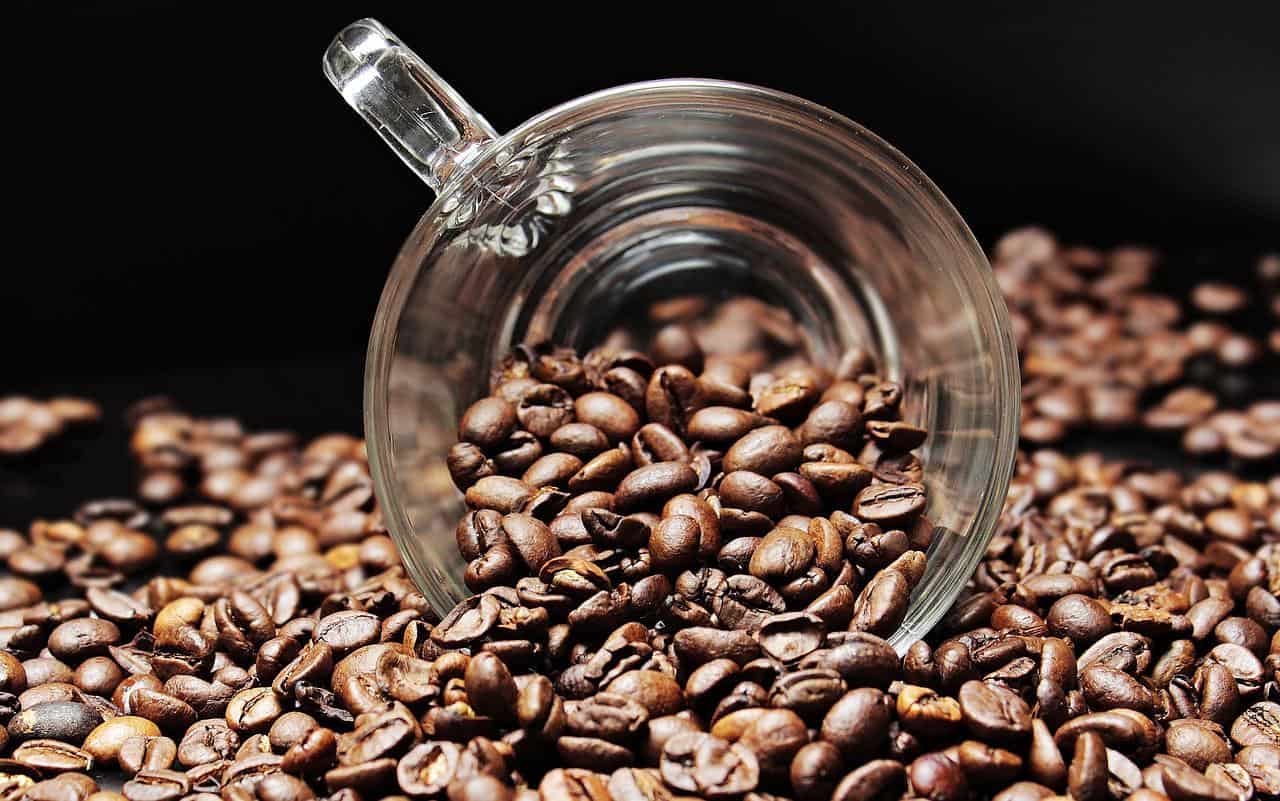Coffee Is Diuretic or Not?

We’ve often found ourselves reaching for that extra glass of water, operating under the shadow of the old adage that coffee, much like a siren, lures us with its aromatic embrace only to leave us stranded in the desert of dehydration.
It’s a narrative we’ve accepted without much skepticism, yet recent studies suggest that we may have been misinformed. As dedicated investigators of truth, we’ve sifted through the sands of data and emerged with some refreshing insights.
The longstanding belief that coffee is a strong diuretic seems to be a mirage, and we’re here to uncover the oasis of facts hiding just beneath the surface. It’s time to reassess our daily rituals and perhaps even toast to the surprising benefits a moderate intake of coffee can offer.
So let’s pour over the evidence together and see if we can finally put to rest the debate over coffee’s diuretic properties.
Key Takeaways
- Moderate coffee consumption does not cause more dehydration than water.
- Excessive consumption of caffeinated beverages can lead to fluid loss.
- Coffee provides valuable fluids and does not lead to dehydration.
- Total fluid consumption throughout the day should be considered.
Understanding Diuretics
To grasp why coffee isn’t the dehydration culprit it’s often made out to be, it’s crucial to understand how diuretics like caffeine actually affect our bodies. While it’s true that caffeine has diuretic properties, increasing urine production, the fluid you’re getting from that cup of joe largely balances out the diuretic effect. We’re looking at a beverage that, for most of us, contributes to our daily fluid intake rather than negating it.
It’s all about moderation. When we enjoy our caffeine in moderate amounts, we maintain our hydration levels just fine. Studies show that caffeine habituated males drinking moderate coffee quantities don’t experience more dehydration than if they were drinking water. That’s quite reassuring for us coffee lovers who want to keep a handle on our health.
However, we’re not turning a blind eye to the fact that excessive consumption of caffeinated beverages can lead to fluid loss. It’s why we’re mindful of our intake, opting for lower caffeine options when necessary, and making sure we’re also sipping on plenty of water. By managing our coffee consumption and staying hydrated, we’re taking control, ensuring that we don’t fall prey to dehydration.
Coffee’s Hydration Effects
We often overlook the hydrating properties of coffee, but moderate consumption provides a valuable contribution to our daily fluid intake without significant dehydration risks. Although caffeine intake does have diuretic effects, the fluid in coffee compensates for this, ensuring that our hydration status remains balanced. It’s clear that moderate daily coffee intake, which for most includes up to four cups, can be part of a healthy hydration strategy.
When we’re drinking coffee, we’re not just sipping on caffeine; we’re also taking in valuable fluids. The myth that coffee leads to dehydration has been debunked, leaving us free to enjoy our brew without undue concern. Of course, we don’t recommend replacing water with coffee entirely, but it’s reassuring to know that our morning cup contributes to our overall fluid intake.
To maintain control over our hydration, it’s crucial to consider our total fluid consumption throughout the day. This includes being mindful of what we’re drinking alongside our coffee and watching for any signs of dehydration. By doing so, we ensure that our bodies remain hydrated and our minds alert, leveraging the benefits of coffee without compromising our health.
Caffeine and Body Fluids
Caffeine often gets a bad rap for its diuretic effects, yet it’s the balance of fluids in caffeinated beverages that keeps us from dehydrating. We’ve delved into the research and found that the diuretic effects of caffeine don’t necessarily lead to dehydration with moderate daily consumption.
In fact, our fluid intake, when it includes coffee, can contribute positively to our hydration levels.
Let’s set the record straight: while caffeine is a diuretic, it doesn’t automatically mean we’re losing more fluids than we’re taking in. For the majority of us, regular coffee consumption isn’t something to worry about in terms of our body’s fluid balance. We’re talking about sensible amounts, of course—up to four cups a day has been shown to be just fine.
But here’s the deal: if we’re not used to caffeine, or if we go overboard, we might see an increase in urine production. That’s our body’s way of saying ‘ease up on the caffeine.’ So, we maintain control by listening to our bodies and adjusting our fluid intake accordingly.
As long as we’re staying within moderate limits, our coffee habit should keep us hydrated just as well as other beverages.
Debunking Coffee Myths
Often misunderstood, coffee’s reputation as a dehydrator is more myth than fact. We’re here to take control of the narrative and debunk coffee myths that have long caused unnecessary concern.
Contrary to the deep-rooted belief that coffee dehydrates, evidence suggests that moderate coffee consumption doesn’t significantly affect our hydration status. The diuretic effect of caffeine causes some increase in urine production, but it’s important to note that this is offset by the fluid content in coffee.
In fact, the idea that coffee leads to dehydration lacks scientific backing. Our body’s response to caffeine is well-regulated, and for most of us, enjoying our daily cups of coffee won’t lead to evidence of dehydration.
It’s essential to understand that while excessive caffeine intake can increase urine production, it doesn’t automatically dehydrate us. Coffee, when consumed in moderation, can contribute to our daily fluid intake just as effectively as water.
Research on Coffee Consumption
Recent studies involving 50 male coffee drinkers suggest that moderate coffee consumption hydrates the body as effectively as water. This challenges the long-held view that caffeine consumption inherently leads to dehydration.
These findings, published in the journal PLOS ONE, indicate that we can confidently include moderate coffee intake as part of our daily fluid requirements.
Our review of controlled trials showed no significant differences in key hydration indicators, such as total body water or urine volume, between those who drank coffee and those who consumed water. This is particularly relevant for us, given that we’re always seeking ways to maintain control over our health and well-being. Knowing that moderate coffee doesn’t negatively impact our hydration status empowers us to make informed decisions about our beverage choices.
Studies show that the diuretic effect commonly associated with caffeine consumption may not apply to those with a habituated coffee intake. A counterbalanced approach to our daily fluid intake, including moderate coffee, aligns with our desire for a balanced lifestyle.
It’s essential to remember that individual hydration needs can vary, and we must listen to our bodies to determine our optimal fluid intake, but these findings certainly pour cold water on the idea that coffee can’t be part of a hydrating diet.
Health Benefits of Coffee
We’ve uncovered that coffee isn’t just a pick-me-up; it’s also packed with antioxidants that can bolster our overall health.
Not only does it sharpen our mental focus, but it also enhances physical performance and may even reduce the risk of certain diseases.
Let’s explore how a daily cup can support liver health and contribute positively to our well-being.
Antioxidant Rich Beverage
Brimming with antioxidants, coffee not only perks up your morning but also offers a multitude of health benefits. As an antioxidant rich beverage, it’s packed with compounds that can help protect our cells from damage. Let’s take control of our health by understanding what makes coffee such a valuable part of our diet.
| Antioxidants in Coffee | Health Benefit | Daily Intake |
|---|---|---|
| Chlorogenic Acids | Reduces inflammation | 3-4 cups of coffee |
| Quinines | Improves physical performance | 200-400 milligrams of caffeine |
| Caffeine | Enhances alertness | Moderate intake |
We’re not just sipping on a caffeinated beverage; we’re empowering our bodies with each cup. It’s important to monitor our intake, ensuring we enjoy the benefits without overdoing it. Remember, a few cups of coffee can contribute positively to our well-being.
Improved Mental Function
While enjoying the antioxidant benefits of our daily coffee, it’s also worth noting that this beloved beverage can enhance mental function and alertness. We’ve found that drinking a cup of coffee not only perks us up but also sharpens our focus, allowing us to control our mental and physical performance with precision. Here’s how a small amount of our favorite brew can be beneficial:
- Boosts concentration and attention to detail
- Enhances memory recall and learning ability
- Increases processing speed and reaction times
- Elevates mood, potentially reducing the risk of depression
- Small doses of caffeine provide sustained energy without overstimulation
In essence, coffee can be a powerful tool for improved mental function, helping us stay on top of our game.
Physical Performance Enhancer
Beyond its role in hydration, coffee also serves as a potent physical performance enhancer, owing to the stimulating effects of caffeine on the body. We’ve learned that incorporating coffee into our daily fluid intake can actually be beneficial. It’s not just about quenching our thirst; it’s about taking control of our physical activity levels.
Coffee, unlike some energy drinks, doesn’t just provide a temporary boost. It’s a reliable physical performance enhancer that can help us stay on top of our game. Whether we’re facing a tough workout or a long day at work, a moderate intake of coffee can give us that much-needed edge.
It’s about harnessing the power of caffeine responsibly, without compromising our hydration needs.
Reduced Disease Risk
As we consider coffee’s role in enhancing physical performance, it’s equally important to recognize its potential in reducing the risk of certain diseases. Studies have shown that coffee drinkers enjoy a variety of health benefits, suggesting that the beverage’s reputation as a diuretic is overstated. In fact, a counterbalanced cross-over study might reveal that coffee’s hydrating effects can be comparable to non-caffeinated beverages to some extent.
Here are some notable benefits:
- Lower risk of Parkinson’s disease
- Reduced chances of developing type 2 diabetes
- Decreased likelihood of certain cancers
- Improved cognitive function and slower cognitive decline
- Potential reduction in heart disease and stroke risk
We’re empowered by this knowledge, guiding us to make informed decisions about our coffee consumption.
Liver Health Support
Delving into the realm of liver health, we find that coffee consumption is associated with a lower risk of liver diseases, including liver cancer. Let’s assert control over our health by understanding how coffee supports liver function and maintains fluid balance, without causing dehydration.
| Benefit | Explanation | Relevance to Liver Health |
|---|---|---|
| Lower Risk of Cirrhosis | Regular coffee drinking reduces the incidence of liver cirrhosis. | Preventive |
| Antioxidant Properties | Coffee contains antioxidants that protect liver cells from damage. | Protective |
| Improved Enzyme Levels | Studies show coffee drinkers have more favorable liver enzyme levels. | Indicative of Health |
We’re committed to optimizing our liver health, and it’s empowering to know that our daily coffee may play a significant role in this pursuit.
Managing Coffee Intake
We must be mindful when it comes to our coffee consumption, ensuring we stay within the recommended caffeine intake to maintain proper hydration. While coffee does have a mild diuretic effect, it’s crucial to manage our intake to prevent dehydration.
Here are some strategies to help us stay hydrated while enjoying our coffee:
- Monitor our caffeine intake: Stick to the FDA’s guideline of no more than 400 milligrams of caffeine per day.
- Balance with water: For every cup of coffee, drink an equivalent amount of water to maintain hydration.
- Choose lower-caffeine options: Opt for decaf or half-caff blends to enjoy coffee without overdoing the caffeine.
- Listen to our bodies: Pay attention to signs of dehydration such as thirst, dry mouth, and fatigue, and adjust our coffee intake accordingly.
- Incorporate other drinks: Enjoy other hydrating beverages like herbal teas and infused water throughout the day.
Coffee Vs. Other Beverages
When comparing coffee to other beverages, it’s important to note that its moderate consumption contributes to our daily fluid needs without leading to dehydration. Unlike what we might’ve believed, coffee isn’t as much of a diuretic as it’s made out to be. Sure, caffeine can increase urine production to some extent, but the water content in coffee helps us maintain a proper fluid balance.
We know that keeping hydrated is key for our health, and while water is the go-to for water intake, we shouldn’t worry too much if we’re enjoying our cup of Joe. It’s all about not drinking large amounts; sticking to a few cups a day means the diuretic effect of coffee doesn’t pose a problem. Actually, we’re still contributing to our hydration needs.
That said, we shouldn’t rely on coffee alone for hydration. Diversifying our drinking habits ensures we’re getting a good mix of fluids. So, if we’re mindful of how much coffee we’re consuming and balance it out with water and other hydrating beverages, we’ll have a better handle on our fluid intake and overall well-being. Let’s enjoy our coffee but remember to keep water in the loop too.





